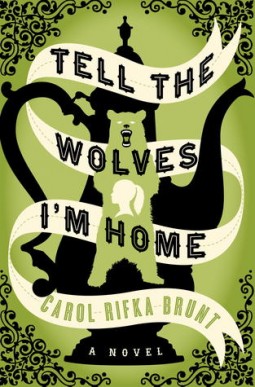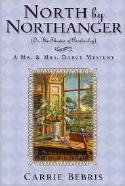This review contains affiliate links, which earn me a small commission when you click and purchase, at no extra cost to you. Thank you for supporting my small business and allowing me to continue providing you a reliable resource for clean book ratings.
It’s 1987, and June is 14 years old. Her uncle Finn has recently died of AIDS, something which, in 1987, is new and incredibly terrifying. Finn and June had a special bond: they shared interests and outings, but it was more than that to June. For her, Finn was the only one who really understood her. And to say his passing has really upset her is an understatement.
Little does she know someone else is grieving as deeply as June. Toby, Finn’s boyfriend, whom the family shuns, reaches out to June for help and healing. Together these two people who cared immensely for Finn, and whom Finn cared for as well, might just figure out how to go on living without him.
While I enjoyed Tell the Wolves I’m Home, and I understood June’s connection with her uncle, a couple of things bothered me. First, I’m not really sure it truly needs to be set in 1987. Perhaps it’s just so the family could be deeply homophobic (they’re OK with Finn being gay; he’s just not allowed to have a relationship, so he keeps Toby under wraps). Maybe it is so that June could run around the forest behind her school or into NYC on a whim, because, as we all know, parenting in the 1980s was much more permissive than it is today. But it disappointed me there wasn’t much done with the whole AIDS scare. There were brief mentions of it here and there, but I didn’t feel anything substantial was achieved by it.
What I did like, however, is the exploration of June’s relationships. Not only with her uncle and his boyfriend, but also with her mother and sister as well. June’s perceptions (because she is only 14) of all those relationships are off, sometimes drastically. And it’s a growing process for her to realize that everything isn’t quite how she perceives, that the truth of everything is multilayered and complex. For me, the true draw of the novel, the true heartache, was watching June grow up.
Rated: Moderate for three f-bombs and some teenage smoking and drinking.
Click here to purchase your copy of Tell the Wolves I’m Home on Amazon.




